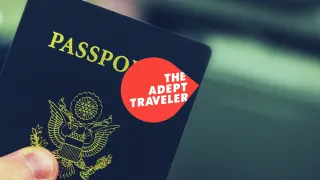Essential Guide: Recover from Theft While Traveling Abroad

Traveling exposes you to new cultures and exciting experiences, but it also poses unique challenges, such as the risk of theft. Being prepared for the possibility of having your belongings stolen can significantly reduce the stress and impact of such events. This guide aims to equip travelers with the knowledge to handle and recover from theft swiftly, whether it's cash, credit cards, your phone, passport, or luggage that's taken.
Immediate Actions
When you realize you've been robbed, the first step is to remain calm and think clearly. Assess your surroundings to ensure you're still in a safe location; if not, move to a secure area immediately. Next, contact the local police to report the incident-a necessary step for insurance claims and any potential recovery of your items. Keep a copy of the police report, as it will be crucial for replacing stolen documents and making claims. It's also advisable to inform any travel companions or local contacts about the incident so they can provide support and help keep an eye out for any suspicious activities that might help in recovering your stolen items.
If Your Cash is Stolen
Losing cash can be particularly distressing due to its irrecoverability. Immediately after discovering the theft, review what other resources you have at your disposal. If you're traveling with others, you may ask for assistance, or use emergency services provided by your bank. Contacting your bank might also provide options for emergency cash transfers or increases in your credit card limit temporarily. Additionally, some travel insurance policies include coverage for stolen cash, so it's crucial to check your policy details and claim any applicable benefits. Always keep a small amount of hidden emergency cash in a separate location from your main funds as a backup.
If Your Credit Cards are Stolen
If your credit cards go missing, act quickly to prevent fraudulent charges. Contact your credit card issuers immediately to report the cards as stolen and to freeze your accounts. Most banks have a 24-hour hotline for such emergencies. Following this, monitor your account statements closely for any unauthorized transactions. Banks typically have policies in place to protect you from fraud, so familiarize yourself with these even before you travel. Moreover, many credit card companies can expedite the shipping of replacement cards to your current location, often arriving within 24 to 48 hours, which can be a lifesaver in maintaining your travel plans and access to funds.
If Your Phone is Stolen
A stolen phone can be a significant loss, not only financially but also in terms of personal data. Use another device to change all passwords linked to apps on your phone, particularly for banking and email accounts. If your phone is enabled with a 'find my device' feature, attempt to locate it or erase its data remotely. Notify your service provider as well to disable your line to prevent unauthorized use. Consider using cloud-based backups before traveling, so you can access your contacts, photos, and documents from any device. In the future, installing tracking and security apps that can lock the phone or display a message with return instructions can also help in recovering your phone.
If Your Passport is Stolen
A stolen passport calls for immediate action. Report the theft to the nearest embassy or consulate. They will guide you through the process of obtaining a temporary travel document. Be sure to have other forms of identification with you, as these will be necessary to prove your citizenship and obtain a replacement. Keep digital copies of important documents securely stored online for such situations. Additionally, the consulate can provide specific advice depending on the country you are in, including local legal requirements and any additional safety measures you should take.
Learn more about handing a stolen passport.
If Your Luggage is Stolen
If your luggage is taken, report it to the airline and local authorities immediately. Provide a detailed description of your bag and its contents, which can help in tracking it down. Check with your travel insurance provider to understand your coverage for stolen personal items and initiate a claim process. In future travels, consider using luggage with GPS trackers to keep tabs on your belongings. Labeling your luggage with contact information and distinct markings can also aid in its recovery and prevent mix-ups or theft in busy travel hubs.
Preventive Measures
To reduce the risk of theft, always use cross-body bags with secure closures, and keep them in sight. Opt for attire with hidden pockets and carry minimal cash. Be mindful of your surroundings, especially in crowded places, and avoid showing off valuable items. Utilize hotel safes and split up your cash and cards to minimize potential losses. Additionally, stay informed about common scams and theft tactics in the areas you are visiting. Engaging with local communities or travel forums online can provide valuable insights into staying safe.
Final Thoughts
While the prospect of being pickpocketed or robbed is unsettling, being prepared can help mitigate the consequences and stress associated with these situations. This guide provides practical steps to deal with the theft of various items and preventative advice to reduce your risk. Remember, using the services of a travel advisor can also provide additional safety tips and resources for your journey. Travel safe, stay alert, and enjoy your adventures with peace of mind.
